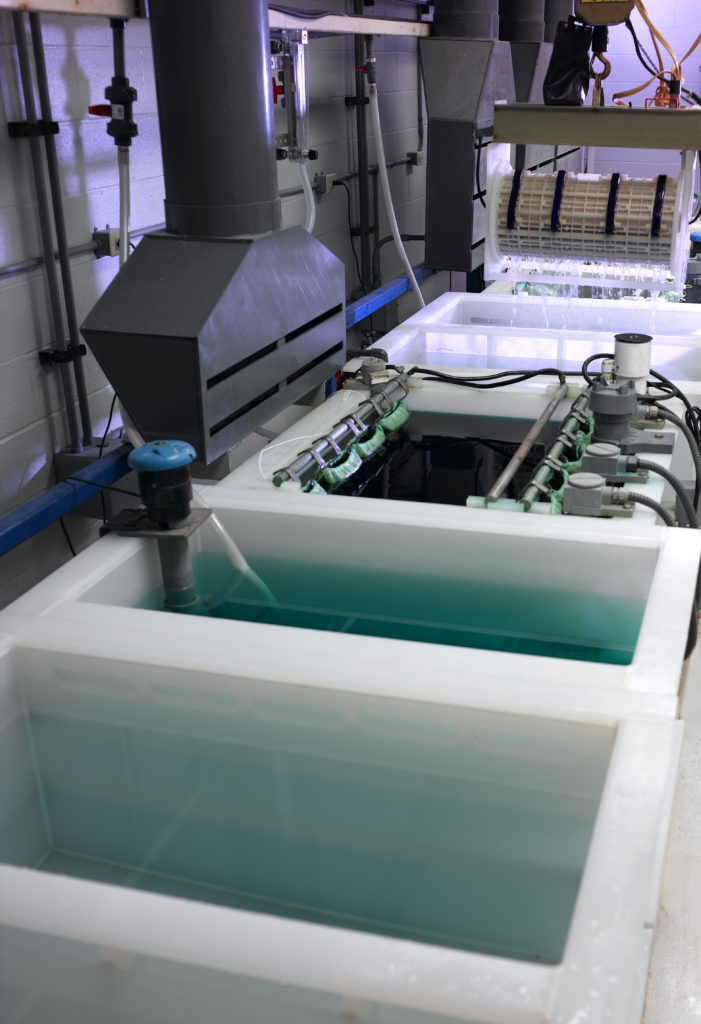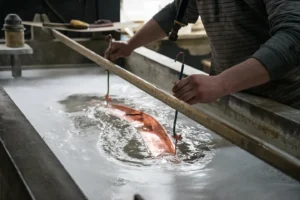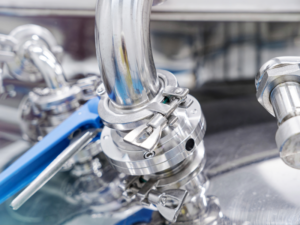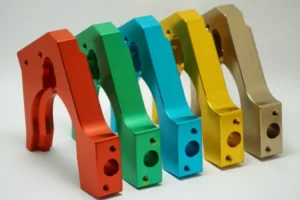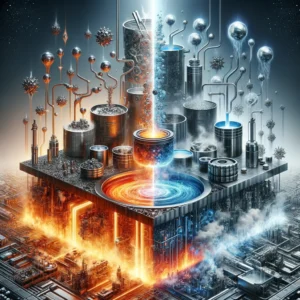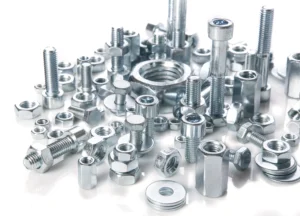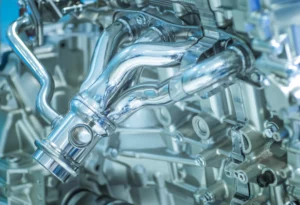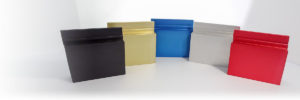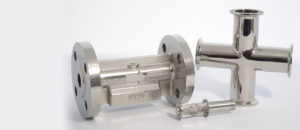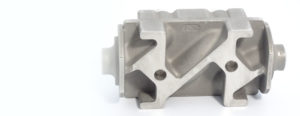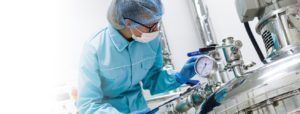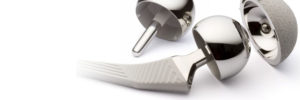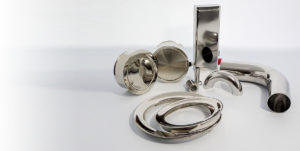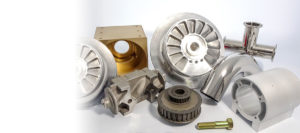Types of Metal Finishes – A Guide to Finishing Solutions and Their Benefits
There are many different types of metal finishes that have a variety of effects on surfaces and substrates. Metal finishes improve metal surfaces and enhance product performance in various ways. Here are some of the benefits surface finishing can provide.
- Durability
- Corrosion resistance
- Chemical resistance
- Electrical resistance
- Abrasion resistance
- Reducing friction
- Conductivity
- Aesthetic appeal
Types of Metal Finishes
This guide includes the following types of finishing operations that manufacturing companies use to improve their products.
Abrasive Blasting
Brushed Finishing
Buff Polishing
Electroplating
Electroless Plating
Electrocoating
Passivation
Powder Coating
Electropolishing
Metal grinding
Abrasive Blasting
Abrasive blasting is a cost-effective solution that combines surface cleaning and finishing into one process. With abrasive blasting, a high-pressure stream of abrasive media is blasted against the part’s surface to remove debris, alter shape and texture, and provide a smooth finish. Abrasive blasting can also prepare surfaces for coatings and plating to increase a product’s performance.
A standard blasting system uses an air compressor that adjusts pressure and volume, a moisture separator to reduce humidity, a water-assisted system for dust suppression, an air supply line, a blast machine to store media, remote controls, a hose, and a hose nozzle. Blasting media such as sand, aluminum, plastic, glass, corn cob, steel grit, walnut shell, silicon carbide, and steel shot is selected based on the part’s material and desired results.
Brushed Finishing
Brushed finishing is like buff polishing, whereas it is a mechanical process used to remove metal ions from the part’s surface. Brushed finishing uses a brush rather than a soft cloth to create a unidirectional satin finish commonly used on stainless steel, aluminum, and nickel.
Buff Polishing
An alternative to electropolishing, buff polishing is not an electrochemical process. Buff polishing is a process that uses a machine with a cloth wheel to provide a shiny metal finish.
Electroplating
Electroplating is a finishing method that passes an electric current through an electrolyte solution. Electricity flows through a circuit that breaks up the electrolyte and causes metal atoms to form on one of the electrodes, the part that is being electroplated. The electrolyte will contain the type of plating material the product needs.
Rack plating and barrel plating are popular methods for electroplating. Rack plating is ideal for complex components that require more attention. Parts are attached to metal racks and dipped into the solution until complete. Barrel plating provides a low-cost, high-volume option for small and durable parts. In this process, the pieces are placed in a rotating barrel filled with the required electrolytic solution.
Electroless plating
Electroless plating is a finishing method that is non-galvanic; there is no electric current in the process, and no external power source is used. Parts are placed in a solution filled with nickel or copper, creating a catalytic reduction of solution that breaks up the material’s ions. Electroless plating makes the parts extremely hard and nonporous, and the reason it is a preferred treatment in industries such as automotive and aerospace, where corrosion resistance is essential. Additionally, the process reduces friction and increases strength.
Electrocoating
Electrocoatings, also called e-coatings, are applied to pretreated metal in an electrocoat bath consisting of deionized water and paint solids. The deionized water carries the paint solids made of resin. The resin film provides corrosion protection, durability and strength, and color and gloss. E-coating can be used on almost any metal and offers a low-cost-per-square-foot finishing option because it can accommodate complex parts and volume.
Passivation
Passivation is a chemical process that makes the material passive and less likely to corrode. Parts are immersed in nitric or citric acid to remove corrosive particles. Passivation reduces the amount of iron that can react with the environment to cause rust. It also creates a protective barrier on the part’s surface without changing its physical appearance. Passivation can be used on various materials, including silicon, aluminum, ferrous materials, stainless steel and nickel.
Powder Coating
Powder coatings are thicker than liquid coatings and offer different pigments, curatives, level agents, flow modifiers and other additives that can be combined to provide the desired protection and aesthetic appeal. A spray gun is typically used to apply the coating, and then the parts are placed into a curing oven to produce a chemical reaction that binds the coating and substrate.
Electropolishing
Electropolishing is the exact opposite of electroplating. Rather than depositing metal ions onto the component’s surface, electropolishing removes metal ions from the substrate. Parts are submerged into an electrolyte bath to apply an electrical current. The material becomes the anode, and ions flow from it, removing defects, rust, etc. Surface peaks and valleys are removed at a microscopic level.
Metal Grinding
Metal grinding smooths a part’s surface with a machine that uses abrasion and friction to eliminate metal ions. There are a variety of metal grinding tools such as handheld machines, grindstones, bench grinders and wheel grinders to choose the option that best suits the application. Metal grinding is best for hard metals, such as hardened steel, that require shallow cuts.
AMF Technologies is an ISO-certified company with decades of surface finishing experience and expertise. Manufacturers trust our reliable quality and unmatched customer service. We meet and exceed the high standards set by industry organizations such as ISO, ASTM, GSA and others.
To determine the right finish for your products, contact us or send your sample and contact information to AMF Technologies, 401 VFW Drive, Rockland, MA 02370.
